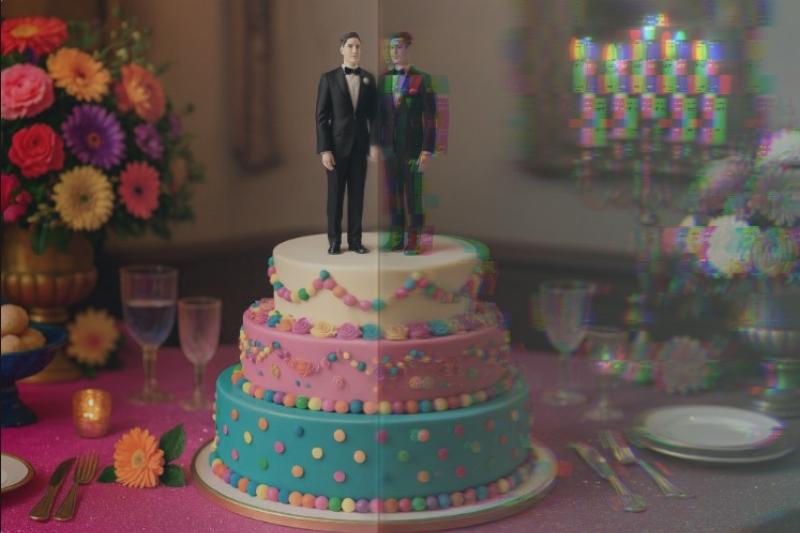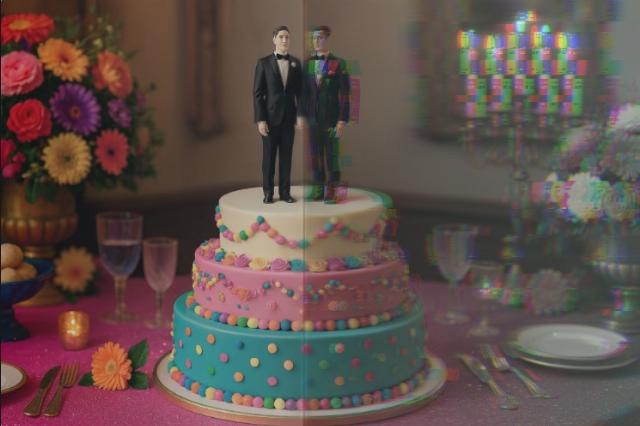


A decade ago, Kim Davis, a court clerk in Kentucky, earned the ire of the entire leftist establishment when she refused to issue same-sex marriage licenses. Now, she’s filed a petition with the Supreme Court asking it to end “the legal fiction of substantive due process,” which is the judge-made doctrine the Supreme Court used in 2015 to justify finding a right to gay marriage in the Constitution.
The “due process” set out in these two constitutional provisions was understood to be procedural. That is, the government had to have rules in place, and it had to follow them scrupulously, without regard to people’s race, color, creed, sex, economic power, etc. The government couldn’t make up the rules as it went along, favoring some and abusing others.

Image created using AI.
The United States Constitution mentions due process only twice. The Fifth Amendment, ratified in 1791, states that “No person shall... be deprived of life, liberty, or property, without due process of law.” This limitation on government power applied solely to the federal government. In 1868, the Fourteenth Amendment extended the limitation so that states could not “deprive any person of life, liberty, or property, without due process of law...”
What, then, is substantive due process? The term first emerged in the 1930s during the Progressive Era. Progressive legal scholars argued that the courts had an obligation under the 14th Amendment to ensure not only that the laws and rules were applied equally, but that laws and rules that were inherently unfair—thereby depriving people of fundamental rights and process—had to be overruled or rewritten.
To understand this, think of Anatole France’s famous quotation, “The law, in its majestic equality, forbids rich and poor alike to sleep under bridges, to beg in the streets, and to steal their bread.” This type of law, if one applies the substantive due process analysis, deprives the poor of their fundamental right to be vagrants and must be voided.
And, indeed, that is how we ended up with dystopian cities inhabited by homeless people with brains made liquid by the twin horrors of mental illness and substance abuse. Trump, mercifully, is addressing this problem.
In other words, “substantive due process” is carte blanche for activist judges. It means that, if the judge thinks something is unfair, it gets undone or redone, and all under the color of the Constitution. The judge substitutes his public policy preferences for those of Congress and the president.
That’s how, in his 2015 Obergefell decision, Justice Anthony Kennedy wrote a passionate romance novel in lieu of a Supreme Court decision. He carefully explained that it was fundamentally unfair that gays and lesbians were denied the chance to have the federal government put its imprimatur on their love. The fact that the state has an interest in marriage for practical reasons (children, societal stability, economic benefits, America’s Judeo-Christian fabric, etc.) was irrelevant.
Everything changed, though, in 2022 with the Dobbs decision. Dobbs held that, if it’s not in the Constitution and wasn’t an accepted part of English common law at the time of the Constitution, it doesn’t exist—and you can’t weasel it into American law via “substantive due process,” penumbras, or emanations.
Perhaps the most important thing, though, was the warning shot in Clarence Thomas’s concurrence (beginning at page 117). He urged that “in future cases, we should reconsider all of this Court’s substantive due process precedents, including...Obergefell.” The problem, he said, is exactly what we’ve repeatedly seen happen, which is that “substantive due process exalts judges at the expense of the People from whom they derive their authority.”
This is why it matters so much that Kim Davis, who has a civil case against her, is using the Dobbs case to challenge Obergefell:
In her filing, Ms. Davis’ attorneys say Obergefell was an act of the court’s will, “not legal judgment.”
“In Obergefell v. Hodges, the Court read a right to same-sex marriage into the Fourteenth Amendment, even though that right is found nowhere in the text,” the petition reads.
“As was predicted at the time Obergefell was decided, it ‘would threaten the religious liberty of many Americans who believe that marriage is a sacred institution between one man and one woman.’ Indeed, Obergefell ‘creates serious questions about religious liberty,’ and ‘people of faith can take no comfort in the treatment they receive[d] from the majority.’”
If Congress can pass a law approving of gay marriage, so be it. If individual state legislatures want to approve of gay marriage within the state, even if gay marriage doesn’t garner federal recognition, so be it. If Congress and the states want to approve of civil recognition for same sex unions, which avoids the clash with First Amendment religious rights, that’s fine, too.
The one thing we cannot allow to happen is for judges to continue rewriting the Constitution and laws of the United States.
